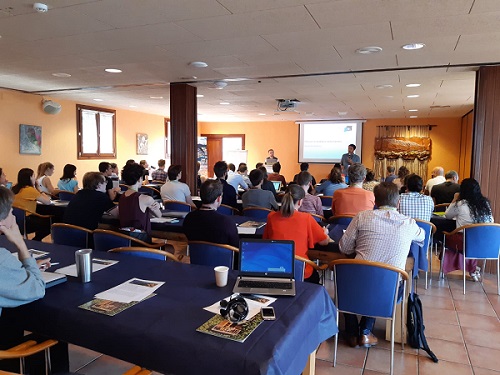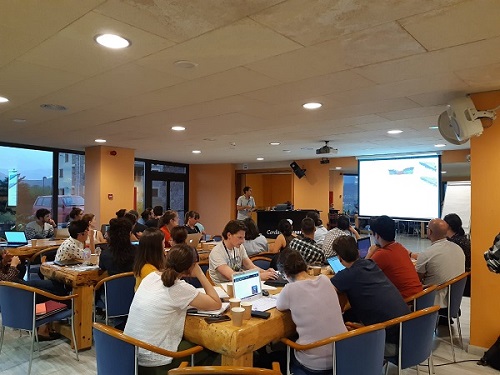Researchers from IBEC and CRG in Barcelona use a technique called high-throughput mutagenesis to study Amyotrophic Lateral Sclerosis (ALS), with unexpected results.
Results showed that aggregation of TDP-43 is not harmful but actually protects cells, changing our understanding of ALS and opening the door to radically new therapeutic approaches.
Amyotrophic lateral sclerosis (ALS) is a devastating and incurable nervous system disease that affects nerve cells in the brain and spinal cord, causing loss of muscle control and normally death within a few years of diagnosis. In ALS, like in other neurodegenerative diseases, specific protein aggregates have long been recognized as the pathological hallmarks, but it is not clear whether they represent the actual cause of the disease. Indeed, alleviating aggregation has repeatedly failed as a therapeutic strategy when trying to treat neurodegenerative diseases such as Alzheimer’s disease.


 More than 60 people attended the “Mechanobiology of Cancer Summer School 2019” organised by IBEC as the center is in charge of coordinating the Mechano·contorl project. The summer school was held in Prullans, a tiny village located at the Catalan Pyrinees between 17 and 21 of September. The event was a great success both in participation and scientific level. The aim of the summer school was to provide training on mechanobiology, and specifically its application to breast cancer, and promote interactions between professionals of the field.
More than 60 people attended the “Mechanobiology of Cancer Summer School 2019” organised by IBEC as the center is in charge of coordinating the Mechano·contorl project. The summer school was held in Prullans, a tiny village located at the Catalan Pyrinees between 17 and 21 of September. The event was a great success both in participation and scientific level. The aim of the summer school was to provide training on mechanobiology, and specifically its application to breast cancer, and promote interactions between professionals of the field. 